Poached eggs are a great alternative to both fried and boiled eggs. They also happen to be the style of egg required for one of the best egg dishes of all time, eggs benedict. But if you don’t really know what you’re doing, making poached eggs can be a bit of a pain.
Today I am going to share with you all the tips and tricks I have learned for perfectly poached eggs from my years in professional kitchens.
This is…
The Secret to perfectly poached eggs
What is a perfectly poached egg?
What exactly constitutes a perfectly poached egg is a matter of opinion. Some people like their poached eggs soft, some like them medium, and some like them hard. Whatever camp you fall into, I prefer mine soft, these tips still apply.
A perfectly poached egg is one where the whites and the yolks stay together, and the yolk is the doneness the diner prefers. The last thing we want is for a solo yolk floating around in a pot of murky water because the whites all broke apart. So, how do we make sure that never happens?
The Eggs
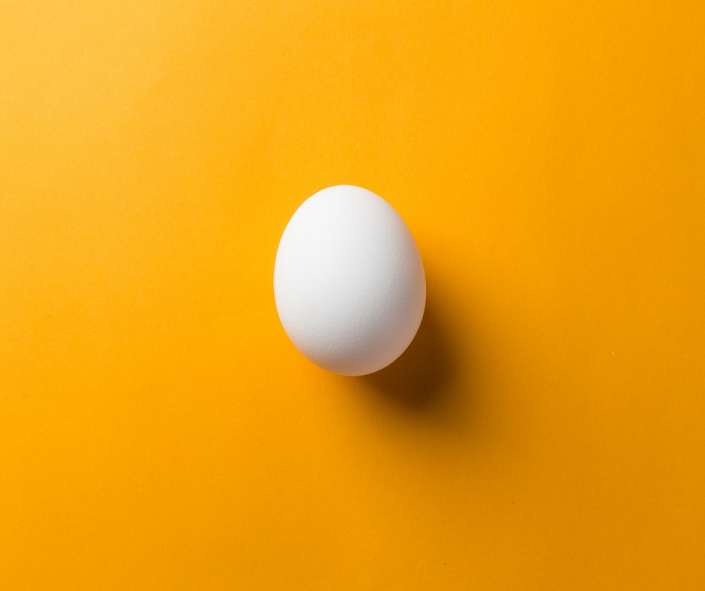
Eggs used for poaching should be as fresh as possible and taken directly from the fridge before use. Fresh, cold eggs have firmer whites that will hold together better during poaching.
The colour and size of the eggs aren’t really important. However, the size of the egg will have an effect on cooking times. Any times that I suggest in this post are based on large-sized eggs.
Vinegar
I’m sure that most people reading this are aware that vinegar is often used when poaching eggs. What might not be as commonly known is how and why we use it and how much should we use?
I know that a lot of people out there are inclined to put the vinegar in the poaching water but this is ineffective. Instead, we actually want to put the vinegar in a bowl and break the eggs into it. Allowing the eggs to sit in the vinegar for a minute or two before adding them to our poaching liquid causes the whites to firm up slightly. Slightly firmer whites mean that the eggs will hold together better in the poaching water.
How much vinegar should we use?
The answer is not much. For two eggs, you may add 1-2 tsp of vinegar to the bowl before adding in the eggs. That is all that is needed for the desired effect.
Make sure to choose a bowl that will allow you to gently slide the eggs into the pot. A small bowl that can actually fit inside the pot so the eggs can be slid right into the water is best. And yes, the vinegar gets poured into the water with the eggs.
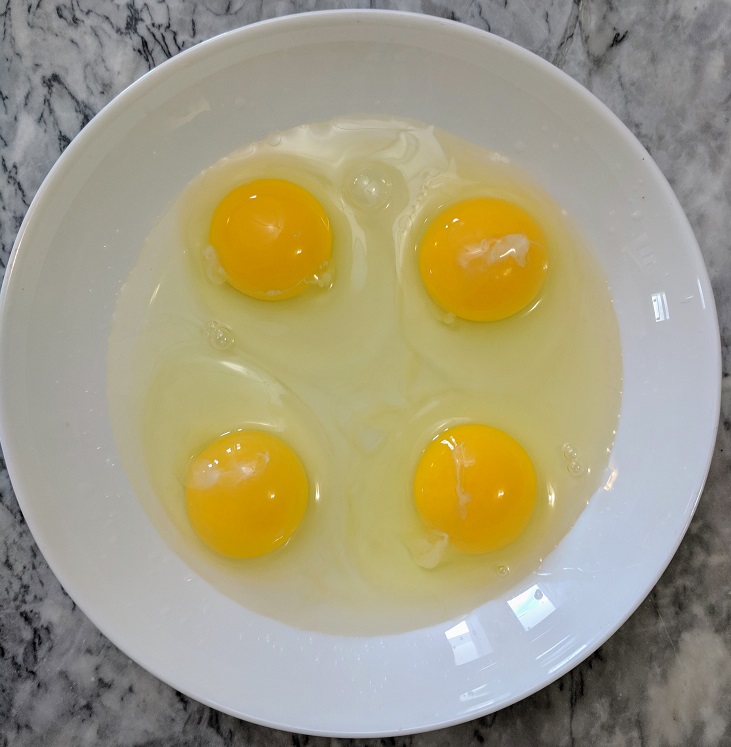
The poaching water
People often ask me if they should salt the poaching water and the answer is a resounding no. The salt will actually toughen the egg causing it to be chewy and rubbery. The difference between the effect the salt has and the vinegar has is that the salt pulls moisture out of the white, causing a rubbery texture. The vinegar is kind of cooking the egg so the texture of the final egg is the same as it would be without the vinegar.
Poaching vs. Boiling
It is really important to note the difference between poaching and boiling. Boiling is a violent process where the water is constantly churning and bubbling. If we boil our eggs two things are going to happen. Number one, the eggs are going to break apart. Number two, the eggs will get hard because the high heat required for boiling is too hot for the eggs.
Poaching is done in simmering water. Imagine that simmering is a peaceful babbling brook, while boiling is violent white water rapids. We want peace for our eggs.
When poaching in simmering water, because there is little to no movement, it is possible for the eggs to sink and stick to the bottom of the pot. To help prevent this and to help keep the egg together right before adding the eggs into the water, give it a big stir creating a cyclone in the center of the pot. Gently, pour the eggs into the cyclone. This should be enough movement to prevent the eggs from sticking.

Once the eggs are in the pot, leave them alone. Stirring or trying to pick them up will only break them apart and you run the risk of breaking the yolk. Don’t touch them for at least four minutes.
Timing for poached eggs
For a soft poached egg, the ideal cooking time is between 4-5 minutes. For a medium poached egg 5-6 minutes. And for a hard poached egg, 7-8 minutes.
When you think your egg has reached the desired doneness carefully remove it from the pot using a slotted spoon. Give the egg a gentle poke with your finger. If the egg is soft, it is poached soft. If it is firm but there is some give, it is poached medium. And of course, if the egg is completely firm, it is poached hard. Remove the eggs from the water, pat dry on a paper towel or clean dishcloth and serve.
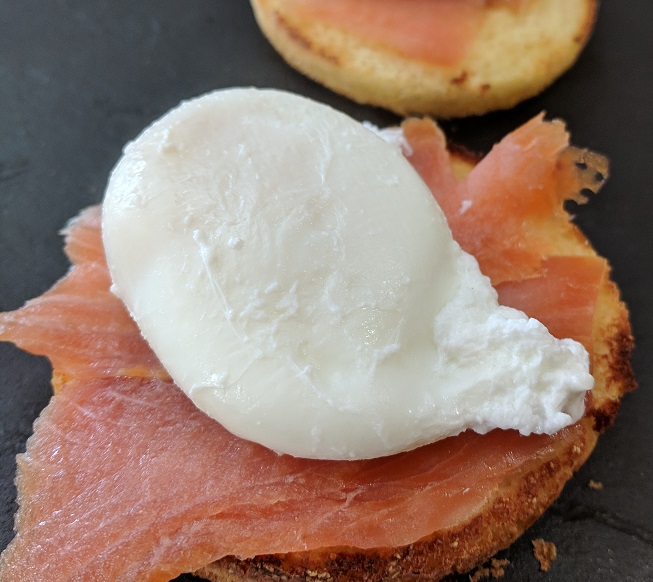
Notes on poached eggs
It is important to remember that a bit of white will always come off the egg. This will likely end up as long thin strands of white floating in the water. This is perfectly normal. Just pull or carefully cut away any strands of white that are hanging on to the egg.
If you are having a bunch of people over for brunch you can pre-poach the eggs. Just poach them soft, remove them from the poaching water directly into ice water. Then when your guests arrive the eggs can be quickly reheated and even cooked through by adding them back into simmer water for 2 minutes or so.
When cooking eggs in any form always add salt after the egg is cooked to prevent the toughening of the white.
Always clean the poaching pot as soon as you can. The stray strands of white will dry on to the pot as will any foam that has formed. If you don’t clean it right away it will become very difficult to clean later.
Conclusion
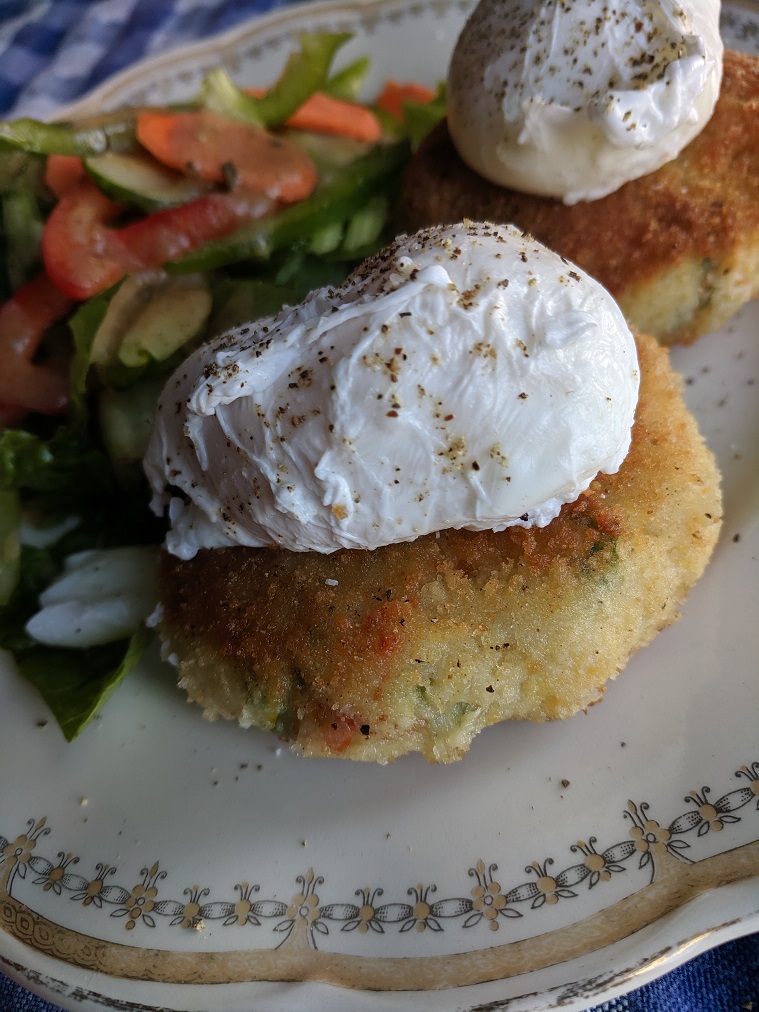
Poached eggs are delicious and a great alternative to fried or hardboiled eggs. Follow the above tips and you will be eating perfectly poached eggs whenever you want.

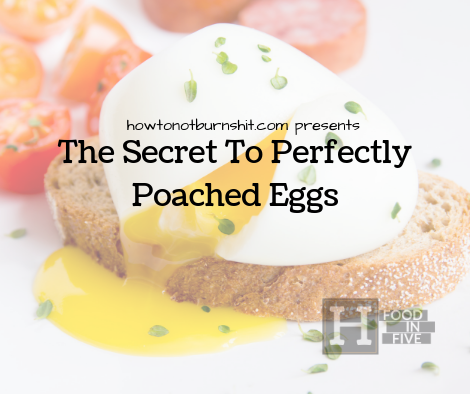
0 Comments